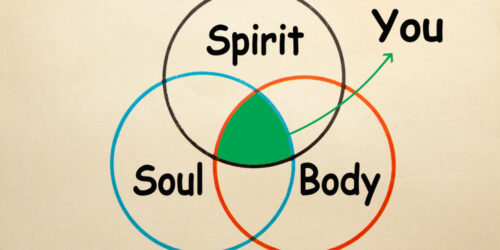The Sugar-Stress Connection: Breaking the Cycle Holistically

Table of Contents
Embark on a journey to uncover the intricate relationship between sugar consumption and stress in our exploration, “The Sugar-Stress Connection: Breaking the Cycle Holistically.” In this SEO-optimized delve into holistic well-being, we navigate the subtle yet profound ways in which dietary choices and stress levels intersect. Through the lens of the latest research and expert insights, we offer actionable tips for breaking free from the sugar-stress cycle, empowering readers to make informed choices about their health. Whether you’re a health enthusiast, a professional in a high-stress environment, or on a journey to holistic well-being, this exploration provides valuable insights to foster a balanced and resilient lifestyle, guiding you toward the sweet spot where dietary choices and stress management converge for optimal well-being.
Understanding the Sweet Culprit

Let’s dive into what’s really going on when you reach for that extra cookie during a hectic day. Sugar might seem like your best friend when stress levels climb, but it’s actually woven into the very fabric of stress in ways that can be harmful. We’ll peel back the layers to reveal how sugar affects your body and its surprising role in your stress response. Get ready to explore the not-so-sweet truths about that candy bar and how it’s actually dialing up your stress meter.
The Effects of Sugar on the Body
Have you ever wondered what happens inside your body when you eat sugar? It’s like a party for your taste buds but a bit of a challenge for the rest of you. After you eat sweets, your blood sugar levels zoom up. To handle this, your body releases insulin, which helps your cells absorb the sugar and use it for energy.
But here’s the catch: if you’re always snacking on sugary stuff, your body needs to pump out more insulin. Over time, this can lead to insulin resistance, which means your body isn’t as good at handling sugar. This can set the stage for health issues, like type 2 diabetes and heart disease, making it super important to keep an eye on those sweet treats!
How Sugar Impacts Stress Levels
Ever feel like reaching for a candy bar when you’re stressed out? That’s because sugar can have a calming effect — but only for a short while. When you eat sugar, it triggers the release of dopamine in your brain, which is a chemical that makes you feel good. This might seem great at first, but there’s a catch.
After the initial rush, your blood sugar levels drop, and your body has to hustle to get things back to normal. This response involves releasing stress hormones like adrenaline and cortisol. These hormones can make you feel jittery and more stressed than before! So the quick sugar fix can end up feeding a vicious cycle of needing more sugar when the stress hormones kick in.
The Neurological Dance of Sugar and Stress

Have you ever wondered why reaching for a candy bar feels almost automatic when pressure builds up? It’s not just your taste buds craving a sweet fix; there’s a complex tango happening inside your brain, tying your emotions and glucose levels together. This intricate relationship dances through our neural pathways, choreographed by hormones like cortisol and serotonin, influencing how we cope with daily hurdles. Let’s lift the curtain on this neurological ballet and see how understanding it could be the first step to managing our stress and sugar intake better.
The Role of Cortisol and its Relation to Sugar Intake
Ever wonder why you reach for a candy bar when you’re feeling low? It might have to do with cortisol, a hormone your body makes when you’re stressed out. Cortisol has a secret mission: it increases your blood sugar, giving you a quick jolt of energy. But there’s a catch – this process also triggers hunger, making you crave more sugar. It’s like a never-ending ride where stress drives sugar cravings, and sugar, in turn, messes with your stress levels.
Imagine your body as a bustling city and cortisol is the traffic cop directing the flow of sugar to where it’s needed. But too much traffic – or in this case, sugar – can lead to jams, or health issues. So when your cortisol levels are high, they’re actually encouraging your system to refuel with sugar, often leading to overeating. To beat this, it’s all about balance. Eating right and managing stress can help keep that cortisol cop on a lunch break, so your sugar levels don’t go on a roller coaster ride.
Serotonin and its Impact on Stress and Sugar Cravings
Have you ever reached for a candy bar when feeling down? If so, you’re not alone. Serotonin, a key hormone in our bodies, plays a massive part in this behavior. It’s often called the ‘happy chemical’ because it contributes to our well-being and mood regulation. When serotonin levels are low, our bodies may crave sugar because eating sweet things can cause a temporary spike in serotonin, making us feel happier in the short-term.
However, giving into too many sugar cravings can be a slippery slope. The issue is that the sugar-induced serotonin lift is followed by a drop, which can lead to feeling stressed again and craving even more sugar. It’s a cycle that’s hard to escape. That’s why it’s so important to find balanced ways to manage stress that don’t involve reaching for sugary snacks. Simple activities like a brisk walk or chatting with a friend can help boost your mood without the sugar crash later.
Sugar-Stress Connection: the Sugar-Stress Trap

Have you ever noticed how reaching for a sweet snack seems to be your go-to move when stress levels shoot up? That’s no coincidence; escaping this cycle is like finding your way out of a maze. But fear not, breaking free is totally doable with the right tools and knowledge. Let’s dive into some practical strategies and mindful practices that can help you dodge the sugar temptation and keep stress at bay. You’re about to discover how to outsmart your cravings and forge a path to a calmer, healthier you.
Nutritional Strategies for Reducing Sugar and Stress
Did you know the food you eat can play a big role in how you feel both inside and out? It’s true! By choosing the right foods, you can cut down on sugar and stress at the same time. Let’s dive into some tasty tips to help you feel better.
Start by adding more whole foods to your plate. This means munching on things like fruits, veggies, nuts, and seeds. These natural goodies are not just low in sugar but also packed with vitamins and minerals that help your body fight stress. Plus, they have fiber which keeps you full and satisfied, making it easier to say no to sweet temptations.
Another great tip is to keep hydrated. Drink plenty of water throughout the day. Sometimes when we think we’re hungry for a sugary snack, we’re actually just thirsty. So before reaching for a treat, try drinking a glass of water and wait a few minutes. You might find that you were just thirsty! Remember, plain water is best, but herbal tea is a good option too.
Lastly, planning your meals ahead of time can prevent stress-induced sugar binges. When you have healthy meals and snacks ready, you won’t be tempted to grab that candy bar or soda. Set aside some time each week to plan and prepare. It’s like giving yourself a road map to good health!
So, by focusing on whole foods, keeping hydrated, and planning your meals, you can get a handle on both sugar and stress. Your body and mind will thank you for it!
Mindful Practices to Curb Sugar Cravings and Manage Stress
Did you know you can battle the urge for a sweet snack and tackle stress too? Mindful practices are key tools that help you do just that. When you’re mindful, you pay close attention to what’s happening in the present moment without judgment. This can be a game changer when those sugar cravings strike, especially during stressful times.
Start with deep breathing exercises or meditation. Just a few minutes each day can make a big difference; they help calm your mind and reduce tension, making those cravings easier to control. Also, try keeping a journal. Writing down when and why you crave sweets can unveil patterns. Maybe you reach for candy when you’re bored or anxious? Spotting these triggers helps you deal with them head-on, using healthier methods to soothe the stress.
The Path to Balance

Stepping toward balance requires more than just cutting down on the sweet stuff; it’s about redefining our lifestyle for long-term success. We don’t just want to survive without sugar; we aim to thrive with new-found harmony between what we eat and how we feel. Embracing sustainable changes can gradually reduce the grip of stress, unwrap us from the candy-coated chaos, and gently place us on a path that leads to a healthier, calmer life.
Establishing a Sustainable Lifestyle Change
Shifting your daily routine to minimize sugar and reduce stress isn’t a sprint; it’s more like a marathon. It’s about creating fresh habits that stick. To kickstart this journey, think about setting goals that are manageable and realistic. This approach makes it less intimidating to make the changes you need.
For example, you could start by swapping out sugary drinks with water or herbal teas. Or maybe you decide to take a short walk whenever you’re feeling the weight of stress on your shoulders. It’s these small steps taken consistently over time that lead to a big difference in how you feel. The key is to stay patient and kind to yourself as you adapt to these healthier choices.
Impact of Reduced Sugar on Stress Levels
Reducing the amount of sugar in your diet isn’t just great for your physical health; it can also do wonders for your mental state. When you cut down on sugar, your body may start to show you some love back. Lower sugar intake has been linked to steadier energy levels throughout the day, which means you can wave goodbye to those mid-day crashes that leave you feeling frazzled and searching for a pick-me-up.
What’s more, less sugar can lead to more stable mood patterns. Without the rollercoaster of highs and lows that sugar can cause, your body finds it easier to maintain a calm and consistent vibe. Imagine getting through your day feeling more level-headed and less like you’re in a tension-filled chase scene from an action movie. That’s the peace of mind that might just be waiting for you when you decide to leave the sweet stuff on the shelf.
Embracing a Sweet and Stress-Free Life

Life’s too short for us to be tangled up in a web of sugar rushes and stress crashes. It’s all about finding the perfect balance—enjoying the sweetness life offers without the sour side effects of stress. Imagine savoring your favorite treats and still owning that zen-like calm! That’s not just a dream; with a bit of wisdom and a sprinkle of self-control, it’s absolutely possible. Let’s explore how you can switch up your lifestyle for the better and transform into a happier, healthier you.
Sugar Substitutes for a Healthier Lifestyle
Let’s talk about swapping out the sweet stuff for options that are kinder to your body. Ditching regular sugar doesn’t mean you have to miss out on sweetness entirely. There are plenty of sugar substitutes that can tickle your taste buds without overloading your system with sugar. Think of things like stevia, erythritol, or xylitol—natural alternatives that can satisfy your sweet tooth with fewer calories and less impact on blood sugar levels.
But it’s not only about going for “sugar-free” labels. What about honey and maple syrup? Sure, they’re sweet and more natural, but they’re still form of sugar and can cause the same problems if you aren’t careful. It’s all about moderation. Adding fruits to your diet is another great option. They’re sweet, full of nutrients, and have fiber that helps slow down the absorption of sugars. Start exploring and you’ll find that cutting down on sugar doesn’t have to be a tasteless journey!
Elevating Mood and Reducing Stress through Healthy Habits
Creating healthy routines is a powerful way to uplift your mood and cut down on stress. One of the simplest yet most effective habits is regular exercise. It doesn’t have to be intense—a daily walk or a bit of yoga can make a big difference. Exercise releases endorphins, those feel-good hormones that act like natural stress busters and mood lifters.
Another key habit is getting enough sleep. Your body repairs itself while you snooze, so aim for 7-9 hours each night. A consistent sleep schedule helps regulate your body’s clock and can improve the quality of your sleep, making you feel more rested and less prone to stress. Remember, a rested mind is a more content and tranquil one.
Conclusion
Unraveling the intricate interplay between sugar and stress unveils promising opportunities for a balanced and blissful state of well-being. By understanding and addressing the connection between these two factors, individuals can pave the way toward a sweeter and stress-free life.
FAQs
Q1: How do you break the sugar cycle? A: Breaking the sugar cycle involves gradual reduction and replacement with healthier alternatives. Incorporating balanced meals, mindful eating, and staying hydrated can support this process.
Q2: Does sugar release stress hormones? A: Yes, sugar consumption can trigger the release of stress hormones like cortisol. Understanding and managing sugar intake is crucial for maintaining a balanced stress response.
Q3: Does stress affect sugar levels? A: Absolutely. Stress can elevate blood sugar levels as the body releases glucose for energy. Managing stress is essential for maintaining overall health, including sugar levels.
Q4: Does quitting sugar improve mental health? A: Yes, reducing sugar intake has been linked to improved mental well-being. Stable blood sugar levels contribute to better mood regulation and mental clarity.
Q5: How much time does it take to break the sugar cycle? A: The time to break the sugar cycle varies, but noticeable changes may occur within a few weeks. Consistency in adopting healthier habits is key for long-term success.
Q6: What happens if you stop eating sugar for 30 days? A: After 30 days without sugar, individuals often experience improved energy levels, enhanced focus, and better overall well-being. The body adapts to a healthier relationship with sugar during this period.
Useful resources
- American Psychological Association (APA): The APA offers a research-backed article on the connection between stress and sugar intake, exploring the biological mechanisms and potential consequences. This link provides a scientific perspective on the topic. https://www.apa.org/topics/stress
- Harvard Health Publishing: This link features an article from Harvard University on managing stress and cravings, including tips for breaking the cycle of stress-induced sugar consumption. It offers practical advice and strategies for individuals seeking to address this issue. https://www.health.harvard.edu/blog/stress-eating-five-strategies-to-slow-down-2019082617620
- Mindful: This website provides a guided meditation specifically designed to address stress-related sugar cravings. It offers a mindfulness-based approach to breaking the cycle and promoting healthier coping mechanisms. https://www.youtube.com/watch?v=j1DHkwKZOtM
- The Center for Discovery and Well-being: This website features a blog post by a registered dietitian on the sugar-stress connection, including tips for identifying triggers and developing healthy alternatives. It offers a practical and personal perspective on the topic. https://healthcare-in-europe.com/en/news/sugar-stress-how-are-they-connected.html








Can you be more specific about the content of your article? After reading it, I still have some doubts. Hope you can help me.
of course just ask any thing or suggest a topic
Thanks for sharing. I read many of your blog posts, cool, your blog is very good.
Thanks for sharing. I read many of your blog posts, cool, your blog is very good.